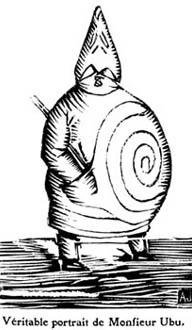User Login |
Aram Saroyan - Complete Minimal PoemsWhen I first obtained Aram Saroyan’s Complete Minimal Poems and passed it around for people to see, the response was universal: “Wow. What a waste of paper.” I was surprised. Was it environmental worries? A book of experimental poetry will hardly sell enough copies to displace more than a dozen perturbed monkeys. Or was it simply a violation of a utilitarian aesthetic? A single word, swimming in white space, cannot possibly have the communicative potency to merit an entire page to itself. Right? In this collection, Saroyan addresses two major concerns with language: the fidelity of words and the ability of the writer to represent reality. In regards to the former, we see linguistic experiments tinkering with the mechanics of the language, injecting letters where they don’t belong and disrupting linear flow. In the section “Electric Poems,” we see shards like these: j;u;n;g;l;e eatc. nnausea Saroyan is taking pleasure in pushing our buttons. What he intends to accomplish with his provocation is not so obvious. It could be read as a critique of a decadent and static language, but maybe this is simply the work of a masterful craftsman at play with his materials. The meat of the book lies in the writing that resembles traditional poetry in its forms, be it narrative fragments or transcriptions of ambient noise. His creative imperative is something akin to Hemingway’s minimalism taken to its absolute extreme, combining sparse words in the hopes of synergy. Usually, he is successful. His pieces pose the question: exactly how much ink is required to create meaning? dimes animal typewriter kitten every days farm eye month arm wheat mile egg With imagination, these seeds readily sprout into fully formed stories. Here we see the nuclei of more elaborate assemblages – Saroyan has successfully condensed thousands of fictions into their fetal forms, incubating in paper nests. So what is more of a waste of paper – blank space rich with possibility or abundant language that might ultimately prove clutter? This kind of poetry begs dismissal. It’s the kind of art your dad would make fun of you for at dinner. “I could do this in under a minute! Where’s the technical accomplishment? Maybe I could sell my dirty napkin to a gallery for a million dollars. Go take out the trash.” I am often inclined to dadism, but where so much experimental art lapses into turgid intolerability, Saroyan escapes by means of sheer skill tempered with possible humor and signs of self-awareness/deprecation. The reader cannot help but come away from this book with the sense of having learned something important. What lingers is an awareness of power, a suspicion tickling at the bones – a suspicion that everything we are saying may be nothing at all.
categories [ Text Reviews ]
login or register to post comments | printer friendly version
|
